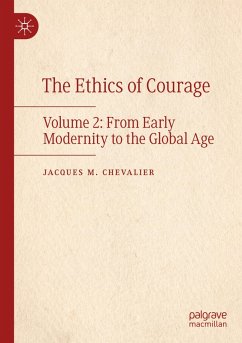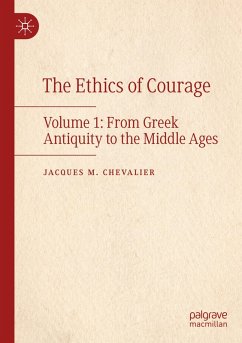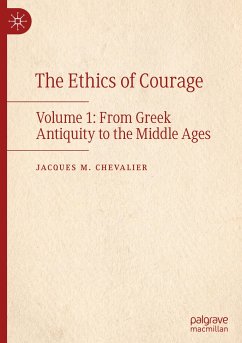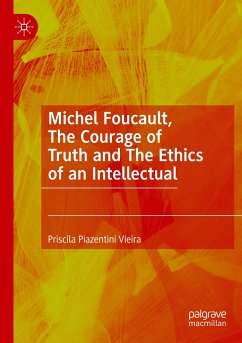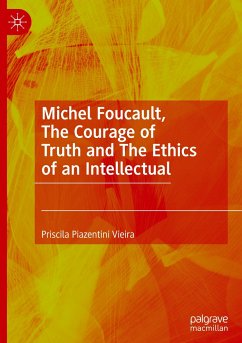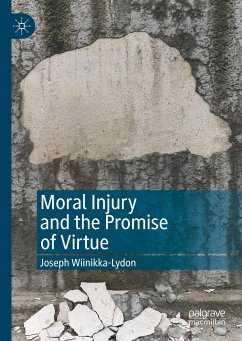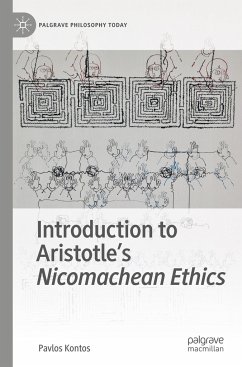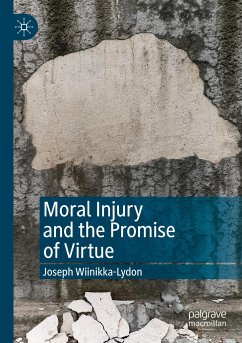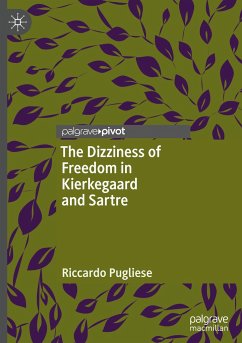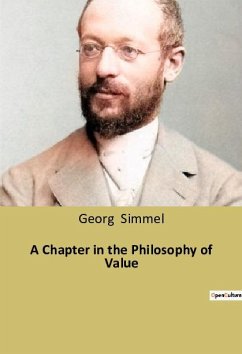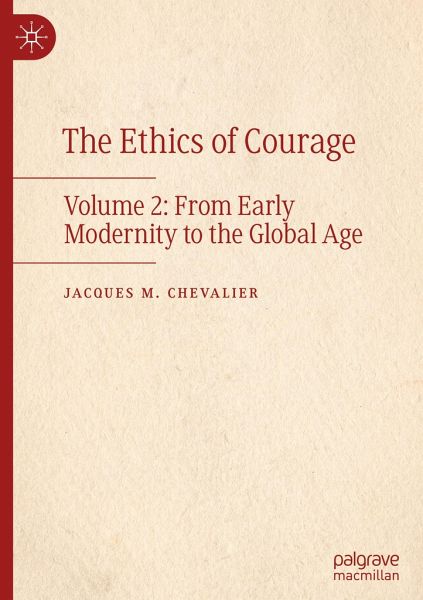
The Ethics of Courage
Volume 2: From Early Modernity to the Global Age
Versandkostenfrei!
Versandfertig in 6-10 Tagen
91,99 €
inkl. MwSt.
Weitere Ausgaben:

PAYBACK Punkte
46 °P sammeln!
This two-volume work examines far-reaching debates on the concept of courage from Greek antiquity to the Christian and mediaeval periods, as well as the modern era. Volume 1 explains how competing accounts of epistêmê, rational wisdom, and truth dominated classical antiquity. Early Christian and mediaeval thinkers, in contrast, favoured fortitude founded on faith and fear of God over philosophical reasoning left to its own devices.Volume 2 turns to theories of courage from the early modern period to the present. It shows how the twin laws of polis and physis are at the heart of post-medieval...
This two-volume work examines far-reaching debates on the concept of courage from Greek antiquity to the Christian and mediaeval periods, as well as the modern era. Volume 1 explains how competing accounts of epistêmê, rational wisdom, and truth dominated classical antiquity. Early Christian and mediaeval thinkers, in contrast, favoured fortitude founded on faith and fear of God over philosophical reasoning left to its own devices.
Volume 2 turns to theories of courage from the early modern period to the present. It shows how the twin laws of polis and physis are at the heart of post-medieval thought. Courage is found at the crossroads of love and dread, freedom and fate, happiness and suffering, as well as power and submission to the ruling order. The later influence of evolutionism, existentialism, and the social and natural sciences on moral philosophy is also addressed at some length. The protection of people's best interests, the passions and powersof the human will, and the rule of active energy in all aspects of life supplant courage formerly viewed through the lens of reason or faith, or a combination of the two.
These new ideas, paradoxically, herald the end of the ethics of courage. They also undermine the courage of ethical thinking. Courage is no longer an end in itself, nor is it a means to happiness "at the end." Regardless of what Gandhi, Tillich, and Foucault have to say about the topic, late modernity and the global age witness a marked loss of interest in courage as an idea worthy of conceptual investigation. Debates about the moral implications of courage give way to the value-free science of resilience, which studies how people can recover from past trauma and find wellness, primarily in the realm of physis.
Volume 2 turns to theories of courage from the early modern period to the present. It shows how the twin laws of polis and physis are at the heart of post-medieval thought. Courage is found at the crossroads of love and dread, freedom and fate, happiness and suffering, as well as power and submission to the ruling order. The later influence of evolutionism, existentialism, and the social and natural sciences on moral philosophy is also addressed at some length. The protection of people's best interests, the passions and powersof the human will, and the rule of active energy in all aspects of life supplant courage formerly viewed through the lens of reason or faith, or a combination of the two.
These new ideas, paradoxically, herald the end of the ethics of courage. They also undermine the courage of ethical thinking. Courage is no longer an end in itself, nor is it a means to happiness "at the end." Regardless of what Gandhi, Tillich, and Foucault have to say about the topic, late modernity and the global age witness a marked loss of interest in courage as an idea worthy of conceptual investigation. Debates about the moral implications of courage give way to the value-free science of resilience, which studies how people can recover from past trauma and find wellness, primarily in the realm of physis.





